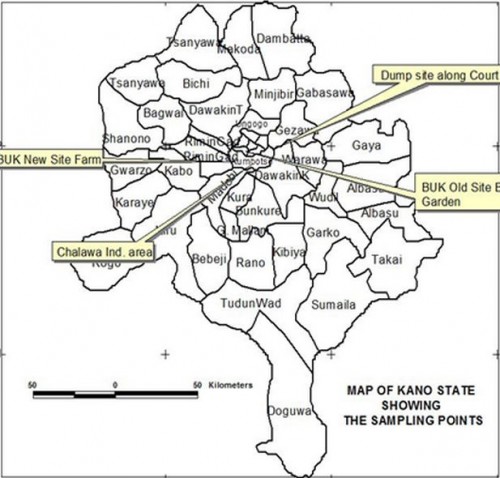Kano state, created on the 27th of May 1967, is the Nigerian state with the highest number of local government areas. Kano state is located in the North Western region of Nigeria and has a reputation as a huge commercial and agricultural hub in Nigeria; especially with its historical place in groundnut production for Nigeria; domestic consumption and exportation purposes. The state which also has more than 18,684 square kilometers of cultivable land, has the reputation for being the most extensively irrigated state in the country.
Kano state has the most number of local government areas in Nigeria; forty four in number. These local government areas include the following: Fagge, Dala, Gwale, Kano Municipal, Tarauni, Nassarawa, Kumbotso, Ungogo, Kano Metropolitan Area, Dawakin Tofa, Tofa, Rimin Gado, Bagwai, Gezawa, Gabasawa, Minjibir, Dambatta, Makoda, Kunchi, Bichi, Tsanyawa, Shanono, Gwarzo, Karaye, Rogo, Kabo, Bunkure, Kibiya, Rano, Tudun Wada, Doguwa, Madobi, Kura, Garun Mallam, Bebeji, Kiru, Sumaila, Garko, Taki, Albasu, Gaya, Ajingi, Wudil, Warawa, Dawakin Kudu.
Kano state is bordered by Katsina state to the North West, Jigawa state to the North East, Bauchi state to the South East and Kaduna state to the South West. Though it is ranked as the twentieth largest state in Nigeria in terms of land area, the 2006 census figures actually regards Kano state as the most populous state in Nigeria, with a population of 9,401,288; more populous than Lagos state which has a population of 9,113,603.[1] Factually, more recent figures in 2011 estimates the population of Kano state to about 11,058,300, with a projected population in 2016, of about 13,076,900.[2]
Kano state is also well known for its solid mineral deposits. Characteristic then of most of these local government areas, is the presence or deposits of a lot of raw materials and agro raw materials lacing them. Some of the raw materials available here include Ball Clay, Casserite, Columbite, Granite, Limenite, Lead-Zinc Ore, Monazite, Kaolin, Gemstone, Laterite, Silica Sand, Tin Ore, Wolframite, Thorium and Gold. The agro-raw materials dominant in most of these local government areas include; sugar-cane, sweet potato, cassava, cocoyam, sheanut, locust bean, soybean, maize, wheat, sorghum, millet, rice, groundnut, cowpea, kenaf, livestock, poultry, tomatoes, Mango, cotton, Onion, guava, Pepper, lettuce, cabbage, Okra, Bambara nut, wheat, garlic, cashew, Boabab trees, Garden egg, fishery, locust bean, benniseed etc.[3] On a commercial level however, Kano state is known as a major producer of hides and skins, sesame, soybean, cotton, garlic, gum Arabic and chili pepper.
Kano state is
the second largest industrial center after Lagos state in Nigeria. It is
however, the most industrialized part of Northern Nigeria, with Textile,
Tanning, Footwear, Cosmetics, Plastics, Enamelwares, Pharmaceuticals, Ceramics,
Furniture and other industries abounding. There is also the presence of
industries that manufacture or produce agricultural implements, soft drinks,
food and beverages, dairy products, vegetable oil, animal feeds etc.[4]
Featured image source: Nigerian Muse

